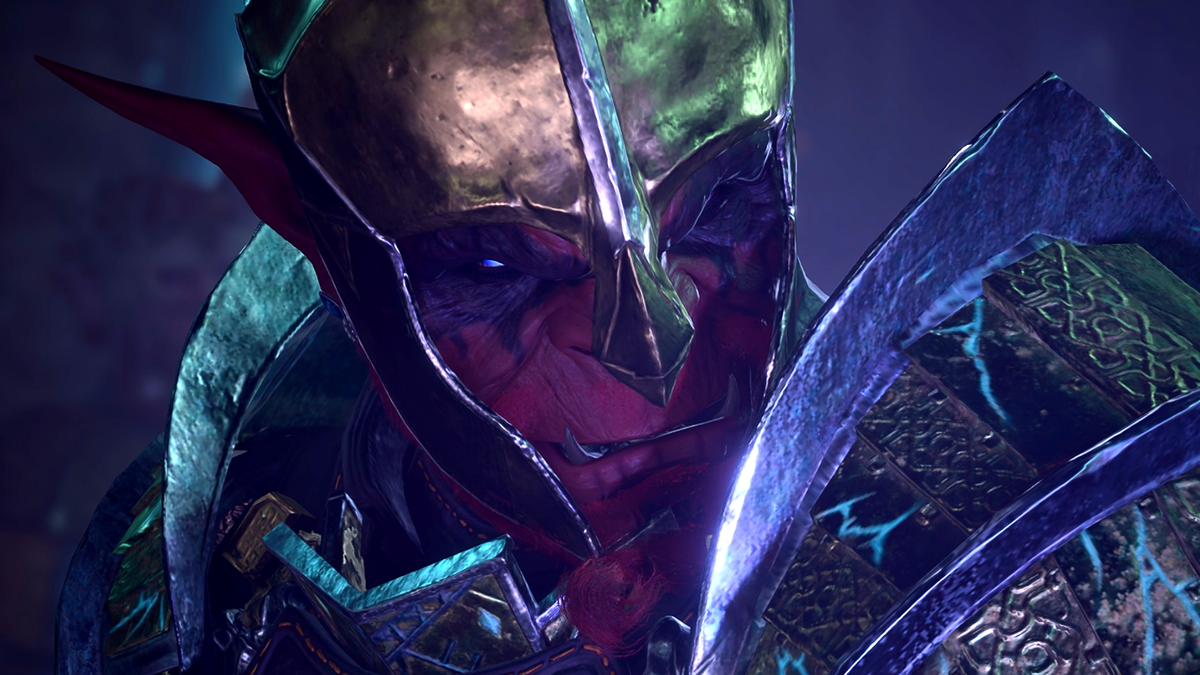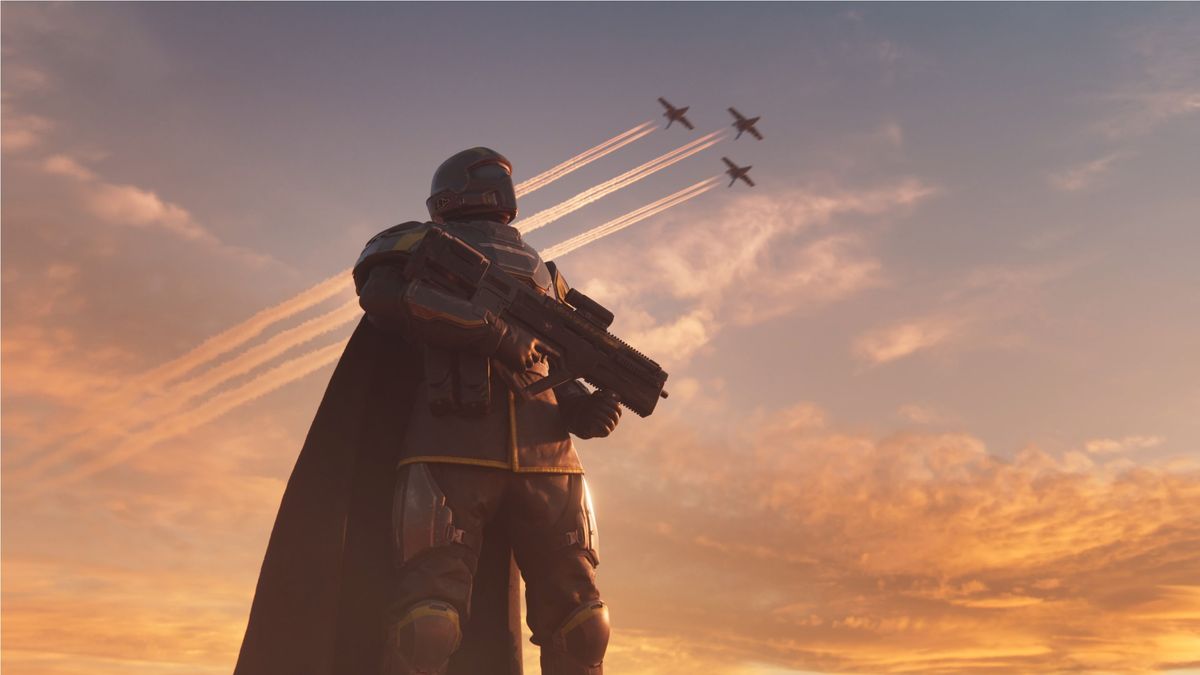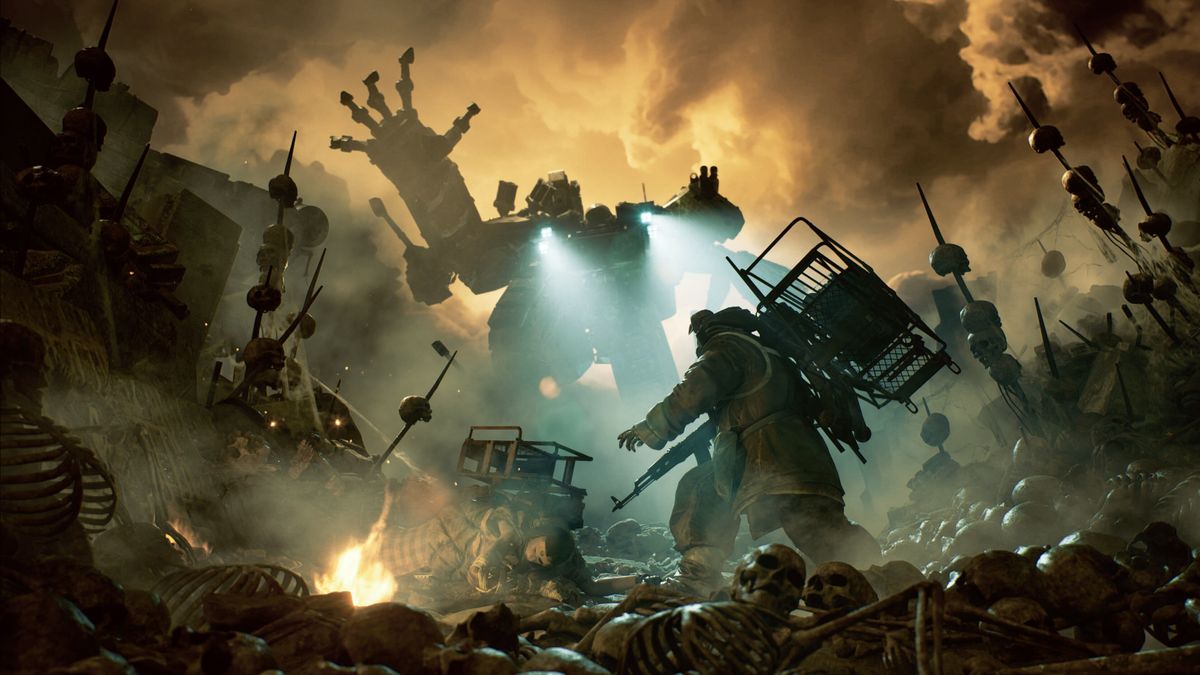I don’t usually say this right out of the gate, but it’s unavoidable here—major spoilers for Baldur’s Gate 3 are about to happen. Specifically plot points from Acts 1 and 2 and the Dark Urge questline, as well as a dash of Act 3 spoilers for seasoning.
I hit Act 3 on an evil Honour Mode playthrough recently—and while the city of Baldur’s Gate doesn’t know my crimes, an eerie sense of quiet has followed me into its otherwise busy streets. It all started in Act 2: Let me paint you a picture.
I’ve checked all of my evil boxes—crossed my t’s, gouged out my eyes (that is how the saying goes, right?) I’m a Dark Urge cleric who worships an evil deity, I give my all to my base instincts, and do whatever papa Bhaal wants me to.
I slaughter the druid grove, I slay the Harpers and let the drider live, and I shuffle Isobel off this mortal coil the moment I was given the order to. I also free Wulbren Bongle, because he’s kind of a jerk but he has bombs—and my cleric likes anything that gives him an excuse to practise the art of war.
While Last Light Inn became a graveyard at my hand, the arc of Act 2 always forces you to cleave your way through Moonrise Towers. Doing this without the Harpers at my back was a complete nightmare—even if Larian does plonk some of the enemy forces by the bridge to divide things up a bit. I think the full fight took around an hour and a half, with so many bodies left in my wake I took a freaking video of it just to hammer things home.
I burned a path through Ketheric’s gloopy mindflayer nest, slew him and his undead daughter, and claimed the first netherstone.
Just Wulbren
In a normal playthrough, the end of Act 2 has this air of triumph to it. The denizens of Last Light Inn crowd into the halls of the tower. Isobel and Dame Aylin reunite, Halsin shares his hopes for the future. You’re surrounded by cheers and friendly vendors, representing an opportunity to take a breath and stock up for the road ahead.
In this dark timeline, though? It was just me, my party, and Wulbren goddamn Bongle. Anticlimax doesn’t even cut it. Minthara cheers me up by dropping into Ketheric’s grand seat and telling me that she’ll never tire of claiming the thrones of dead men—and while I appreciate the effort… man. Who knew butchery was so quiet.
My camp is likewise destitute. I’ve either killed or refused anyone outside of my core party of Shadowhart, Astarion, and Minthara, with Lae’zel permanently parked after Act 2. I kept Volo around because being able to bag a bundle of supplies from him every long rest is a major benefit, and I figure he’s too scared of me to leave. Otherwise it’s silent. Gloomy, even. Sites designed for a full host of colourful characters are spaciously glum.
I’m also playing in Honour Mode, and while I wouldn’t typically care about optimisation all that much, I do when permadeath’s on the table, and lemme tell you: An evil playthrough limits your options.
I miss Dammon, man
Killing the tieflings robs you of a lot of great items, like the Cloak of Cunning Brume from Mattis in Act 2 that lets you drop a fog cloud on an enemy with a single bonus action, typically giving your whole party advantage against them without a save via the blind condition. Then there’s Dammon, who has so much kit that I had to put ’em in list format:
The Sword of Lifestealing, a +2 weapon that deals extra damage and gives you temporary HP on a critical hit.The Darkfire Shortbow, which gives you resistance to two whole damage types and the ability to cast Haste.All of the Flawed Helldusk pieces. While the chestplate’s kind of redundant if you got a set of Adamantine Armor from Grymforge in Act 1, both the helmet and the gloves have some great adds.The Armour of Persistence in Act 3—straight up one of the best heavy armour sets in the game. All incoming damage is reduced by two, you gain 1d4 to every saving throw you make, and you get resistance to all bludgeoning, piercing and slashing damage.
And that’s just a shortlist of the items I happen to like. Heck, even letting Barcus Wroot live nets you some great items like the Gloves of the Automaton—which let you use that halberd from Act 1’s mage tower without zapping yourself silly. Also he has a cool grenade, and is significantly chiller than Wulbren Bongle who—I can’t stress this enough—sucks.
I’ve not pushed into the final confrontation with the Netherbrain just yet. In fact, I’m sort of procrastinating coming back to the playthrough, because it’s becoming increasingly clear that I’ll only have a handful of allies to summon in the final fight. Instead of victoriously charging the Absolute with an army in tow, it’s gonna be me and… who? Put your hand down, Wulbren. I’m not summoning you out of sheer spite.
Is evil good, or just so bad?
The “good” version of Baldur’s Gate 3—the one where you save everyone, complete their questlines, and wrap everything in a nice and tidy bow—is a hopeful story. It’s about the power people have over their own fates, how they can escape a bad situation with the support of those around them. It’s a detailed, textured story with a wide cast of characters, excellently cast and voice acted.
An evil playthrough is a lonely, so-so romp filled with combat and nice people screaming at you. This is not a world in which heroes exist—only bad people, and bad people who happen to be killing other bad people for you. There’s nothing to be learned here. In fact, my cleric’s meddling with his companions has actively made them worse, as is the case with Shadowheart.
I think it’s fair to call the fully evil route a smidge underdeveloped. In another timeline, the goblins would replace the tieflings in terms of importance—but I think I might like it this way. I’m reminded of Undertale’s genocide run, wherein cleaning an area of monsters would replace the chipper background music with an echoing dirge of nothing, because hey. Turns out, if you kill everyone, then you’re going to be alone. And if you’re not, it’ll be because Wulbren’s there, which is arguably worse.


